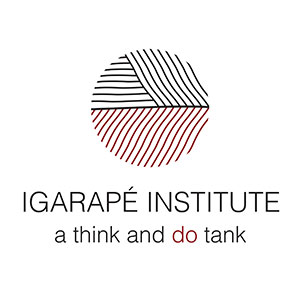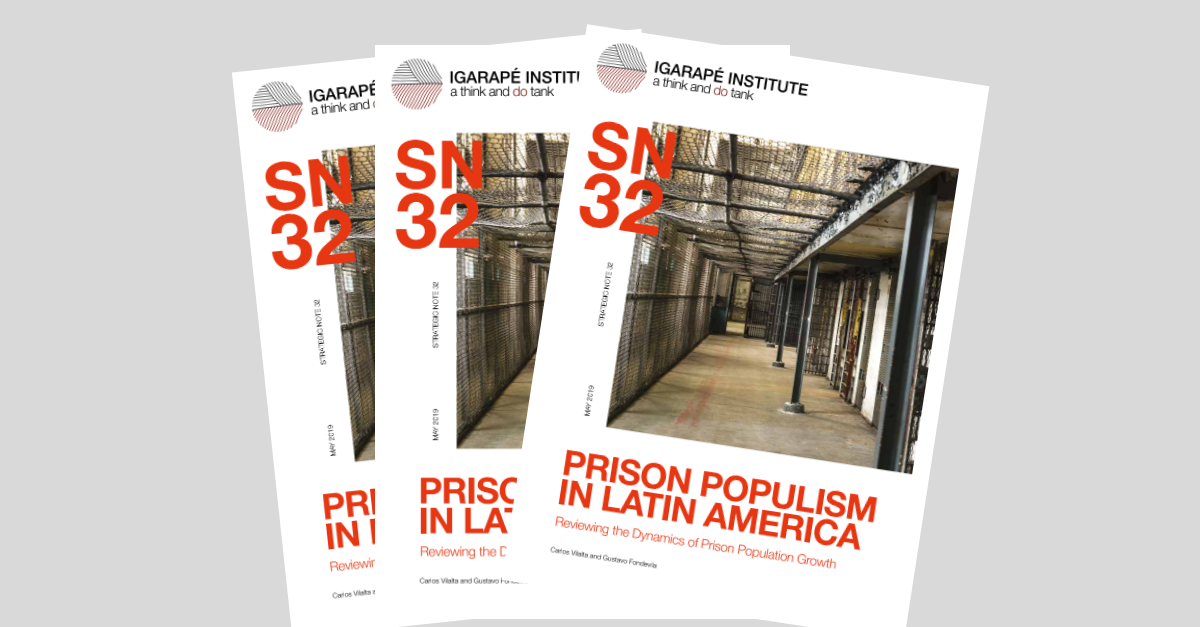Prison populism in the Americas
Latin America has the fastest growing prison population on the planet. More than 1.4 million Latin Americans are behind bars, and the population is growing three times faster than the natural population growth rate. Most prisons are over-crowded and inhumane, contributing to above average mortality and morbidity among inmates. In Brazil, prisons are 185% above capacity while in Mexico roughly 30% of inmates lack access to drinking water.
Many governments across Latin America have resorted to mass incarceration and heavy sentencing as a strategy to fight crime. Igarapé Institute´s latest Strategic Note – Prison Populism in Latin America: Reviewing the Dynamics of Prison Population Growth – sheds light on the intended and unintended repercussions of these efforts. Authors Carlos Vilalta and Gustavo Gondevila find that Latin American prison populations have doubled since 2000, growing at a faster rate than every other region.
Prison Populism finds that Latin America will likely sustain the world´s highest proportion of inmates for the foreseeable future. The largest prison populations are in Brazil, Mexico and Colombia, accounting for over 68% or the region´s caseload. The highest prison rates, however, are in Belize, Costa Rica, El Salvador and Panama. Carlos Vilalta believes that punitive attitudes and policies are largely to blame: “repressive law and order measures are driving prison population growth, including explicit support from elites and tacit support from the general population.”
Prison Populism warns that mano dura style approaches to crime control and mass incarceration can generate negative unintended consequences. The hardening of attitudes is one challenge. Indeed, the Strategic Note finds that the proportion of Latin Americans supporting tough on crime approaches increased from 47% in 2012 to 54% in 2014. This in turn can undermine confidence in democracy and democratic institutions, as more and more Latin Americans endorse authoritarian-style solutions to domestic challenges.
Both researchers are available for interviews. The study can be found for free download on the Igarapé Institute website.
About the researchers
Carlos Vilalta: researcher at the Centro de Investigación en Ciencias de Información Geoespacial (CentroGeo) and member of the Mexican National System of Researchers (SNI-3). He has a Ph.D in Urban Studies from Portland State University and a master´s in the same field from El Colegio de Mexico. More information at: www.carlosvilalta.com and @cjvilalta
Gustavo Fondevila: professor-researcher at the Center for Research and Teaching in Economics (CIDE) and member of the Mexican National System of Researcher (CONACyT). PhD in Law from the Buenos Aires University. Magister Artium in political sciences from the Johannes Gutenberg University-Mainz (Germany).
About Igarapé Institute
The Igarapé Institute is an independent think and do tank devoted to integrating security, justice and development agendas. The Institute’s goal is to propose innovative solutions to complex social challenges through research, new technologies, influence in public policies and articulation. The Institute currently works with 5 overarching themes: (i) national and global drug policies; (ii) citizen security; (iii) building peace; (iv) safer cities; and (v) cybersecurity. We are headquartered in Rio de Janeiro but transcending local, national and regional boundaries through our work.
More info
Renata Rodrigues (renatarodrigues@igarape.org.br)
(21) 3496-2114 | (21) 98038-2376




